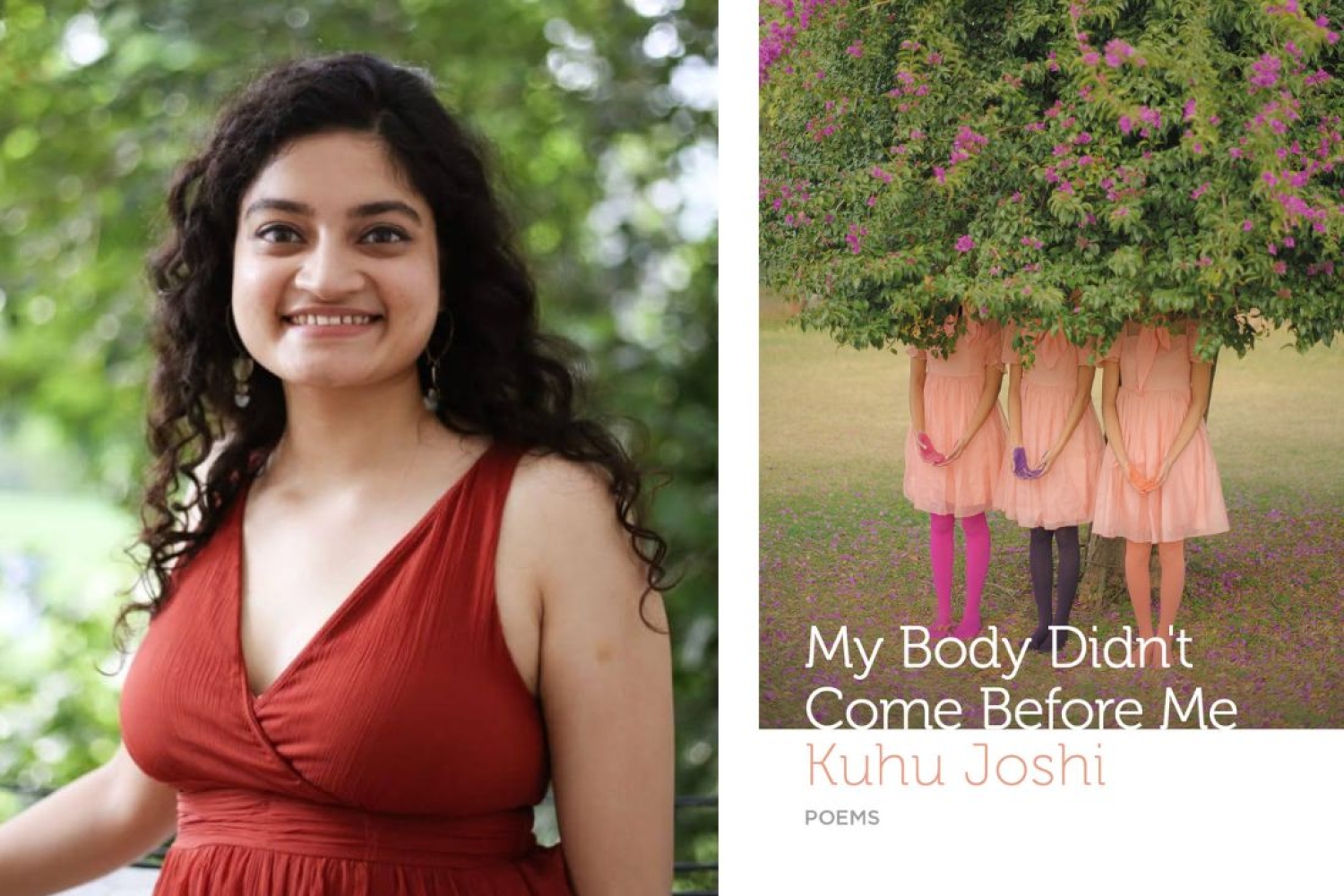
Photo Credits: Maduli Thaosen

Photo Credits: Maduli Thaosen
Kuhu Joshi’s debut poetry collection, My Body Didn’t Come Before Me, transports you to different surroundings—the doctor’s office, the Chocolateria, the lover’s apartment, the Nani’s house and more. In all of these unconnected places, Joshi pulls us to think about our relationship with our bodies. Battling through body shaming, spinal deformity and depression, she attempts to gain agency of her self beyond her body. In this conversation, she shares her gut-wrenching stories and insights that led to the creation of this book.
Your book often conflates your relationship with your family and your body. Why did you choose to focus on them?
I think a whole family goes through transitions like these – if your child’s body is messed up, deformed, or suddenly detected as an abnormality, you are affected. Your life changes. There was a before, and now you’re in an endless after – that’s the nature of a chronic condition. I was 12 when I was diagnosed. Scoliosis is a progressive conditionand it affects almost all functions of the body. We were told there was no cause, no cure. It was a muddy period of much pain and confusion in our family. My mother was the only person who seemed to know what to do. She drove me to doctors’ appointments and endless scans and ther- apies and yoga classes.
But really, I think it comes down to the fact that those two – the body and the family – are my primary subjects as an artist. The choice-less-ness is inherent to familial bonds. How inextricably interlinked our lives are. I did not choose my mother or father. Just as I did not choose my body. I am amused by this lack of choice. Do we have any control over it? Over the hand of fate?
Tell us what the title of your book entails.
My Body Didn’t Come Before Me was originally the title of a poem that is now titled ‘Big’ (pg 59). It’s a poem in which I try to roly-poly down a hill in our neighbourhood park, but fail to enjoy myself because I am hyperaware of my body. Even as a ten-year-old, I was filled with that level of self-consciousness. The body always came before me. It dictated how I would feel about myself. I remember I used to have “fat days” and “thin days”, and my friends would laugh because I actually looked exactly the same on any day. My Body Didn’t Come Before Me is a chant, a spell, an affirmation. In a society that will have you reduced to the shape of your body, it is a quiet call for defiance.
Why did you choose the form of poetry for telling your story?
That’s an interesting question. The source for the writing is personal, yes, but I don’t think of my work as “auto-biographical.” I think of it as art, and I used my story as material for the art. The poems are their own beasts. I am attracted to the fragmentary nature of poetry, and how malleable and expansive it is as a form. I sing and paint, and poetry feels like a confluence of the two at times. Then again, poetry wasn’t really a choice. I write poetry because that’s what comes out on the page when I sit down to write. I am skilled as a poet in ways that I am not yet as a storyteller.
This is an exclusive excerpt from our November EZ. To read the entire article and more such pieces, follow the link here.
Words Paridhi Badgotri
Date 18.12.2023